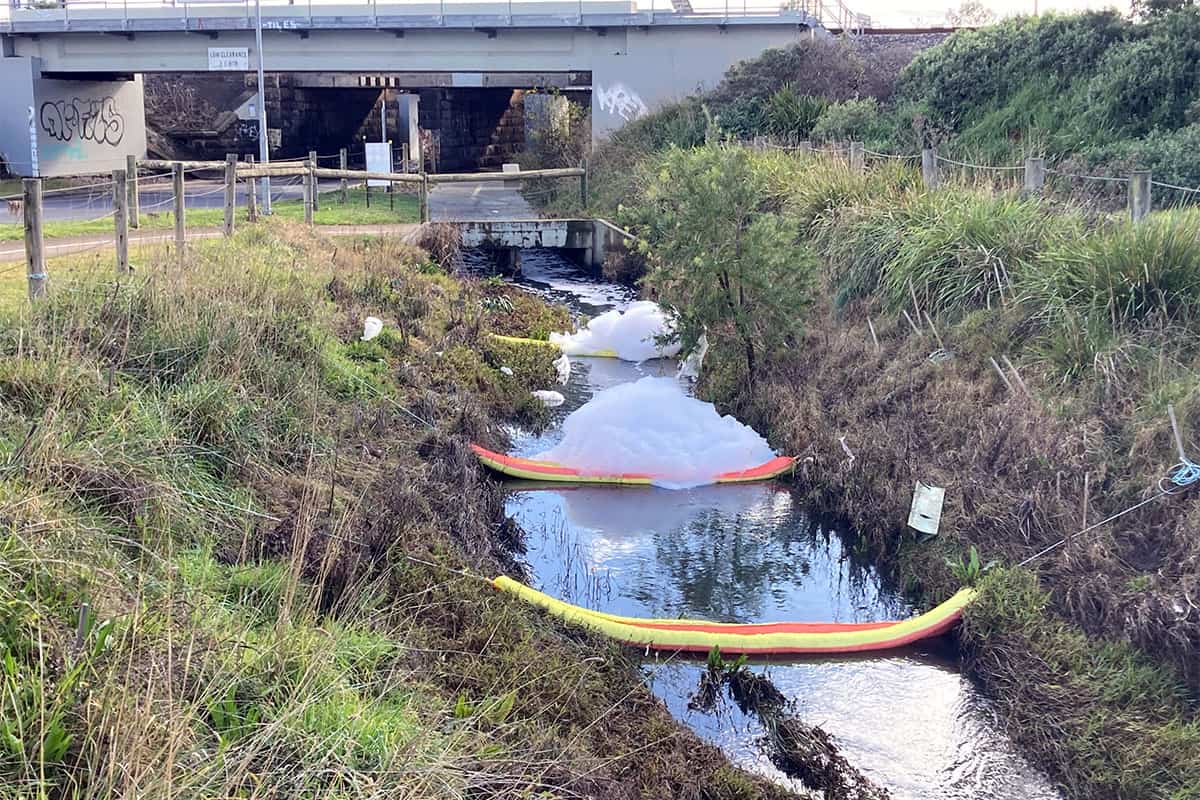
Physical barriers are in place to remove pollutants from water (photo credit: Melbourne Water)
The fallout from the Derrimut chemical fire continues as Melbourne Water has received and continues treating 12 million litres of contaminated firewater at its Western Treatment Plant (WTP): the equivalent of six Olympic swimming pools.
“The chemical fire may be old news, but treating the contaminated firewater will take a month,” said Kris Coventry, Head of Western Treatment Plant, Melbourne Water.
Melbourne Water staff worked on-site at Derrimut with the Environment Protection Authority to support the removal of 12 million litres of contaminated firewater runoff into a nearby sewer connected to the WTP.
Aerated lagoon at the Western Treatment Plant Contaminated runoff will be treated at the Western Treatment Plant’s lagoons to remove hydrocarbons.
“Having chemicals like hydrocarbons – diesel, oil, gasoline – coming to a treatment plant is always a better outcome than letting them go into a waterway,” said Kris.
Over a month, the water will go through a process of aeration and decontamination through a series of lagoons at WTP containing micro-organisms that remove hydrocarbons.
“The micro-organisms are a complex microbiota of bugs that literally “chew up” the hydrocarbons in the contaminated water as part of a treatment and recycling process that is entirely natural,” said Kris.
The biogases emitted from the process will be captured and converted to energy to power the WTP and feed the grid.
After treatment, the water will be used for non-drinking purposes (agriculture and industry) or safely discharged into the bay.
Back at Derrimut, physical barriers like sandbags, plugs, and booms remain in place at key creek locations to remove pollutants from the water.
Absorbent ‘booms’ float on the creek surface to absorb fire debris, fuels, and oils, and concrete drains are flushed, hot-washed, or pressure-washed to remove remaining pollution deposits.
Melbourne Water says responding to pollution incidents is a necessary but avoidable part of its role as a custodian of Melbourne’s waterways and catchments.
Melbourne Water reports that it has responded to 113 waterway pollution events since 1 July 2023, including 13 fires in factories or commercial premises.


